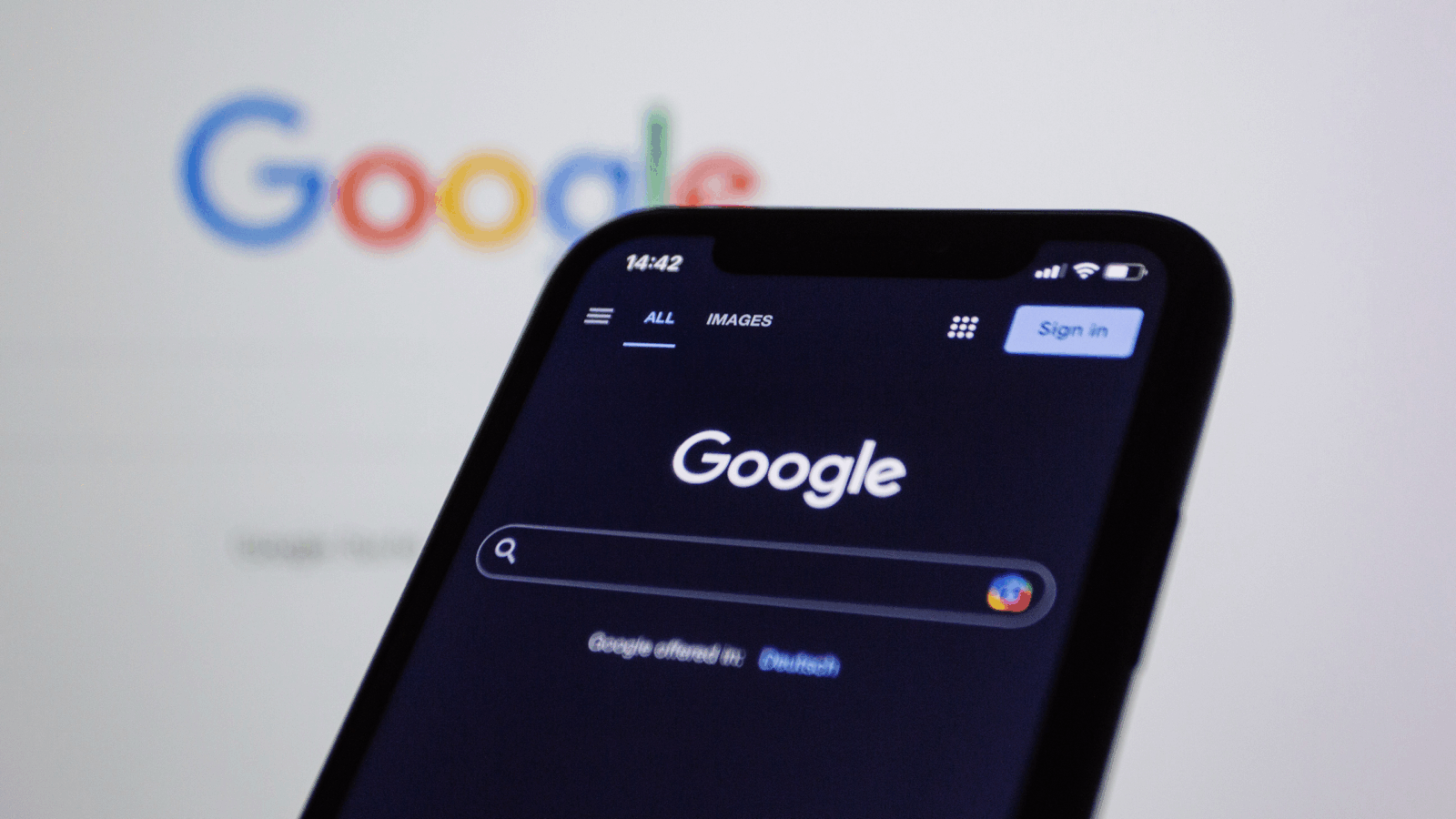Good morning and happy Monday.
Not even the world’s broker-dealers and financiers of business jets are immune to tariff turmoil — in a new survey by Barclay’s, almost half, or 46%, reported a declining number of customers looking to buy their own plane since March. It’s a sign that even the richest of the rich are assessing their spending as the world braces for the next chapter in the global trade showdown.
You downgrade from the cage-free, organic eggs to a cheaper alternative, your CEO downgrades from a Gulfstream G650ER to Delta One Suites. Sacrifices all around.
What Does Google’s Search Monopoly Mean in the Age of AI?

Five years can seem like a century in technology terms.
When the US Department of Justice first formally accused Google of operating an illegal monopoly in the search market back in 2020, ChatGPT was still a sci-fi dream and Gen Z was just starting to trawl TikTok for makeup tips and local restaurant recommendations. The government finally won that case back in August, and today, it enters the second week in a three-week follow-up trial to determine remedies for Google’s search monopoly. But one key question looms over everything: What does a search monopoly even mean in the new era of AI chatbots?
Chatbot With Me
Back in 2020, Google’s ironclad control over how users search the internet was pretty clear. Its market share over search hovered at about 92% by most metrics; its next closest competitor, Bing, was at under 3%. And the DOJ has successfully argued that Google achieved said market stranglehold via anticompetitive business practices, such as paying Apple billions of dollars per year to be the default search engine on its devices and funneling users in the Google ecosystem to its Chrome browser, where, of course, Google is the default search engine (which is why forcing the sale or spin-off of Chrome is one of the DOJ’s chief goals in the remedy phase of the trial).
In 2025, the state of play is a little murkier. Google’s lawyers argue that the rise of chatbots is proof that competition is healthy, and said remedies would be tantamount to “handouts” to AI rivals. But it’s still unclear just how big a competitor AI is. A September survey conducted by Evercore found 8% of 1,300 respondents cited ChatGPT as their primary search engine, up from 1% just a few months prior. A March analysis found Google search handles 373 times more queries than ChatGPT.
For its part, the DOJ has argued in the remedies phase of the trial that AI chatbots are just another space that Google can use its vast capital and resources to dominate, if left unchecked. In fact, prosecutors allege it’s happening already:
- Last week, the DOJ pointed to a new agreement in which Google pays Samsung “enormous sums” every month to have the Google Gemini AI app installed on Samsung devices, mirroring the Apple Search agreement.
- Similarly, an executive from Perplexity AI testified last week that Google’s device exclusivity deals effectively blocked the startup from making an agreement with Motorola to have its AI app pre-installed on that company’s devices. On Thursday, Perplexity announced it had finally struck a deal Motorola, which its CEO told The Verge could not have happened “if Google had not gone through the DOJ trial.”
“This court’s remedy should be forward-looking and not ignore what is on the horizon,” DOJ attorney David Dahlquist said in his opening statement last week.
Up For Sale: If the court ultimately rules that Google must sell its Chrome browser, a few potential buyers are already lining up to make a bid, including OpenAI and Perplexity, which both admitted in court last week that they’d be interested. In other words: The end of one antitrust trial may just open the door for another one, 10 years down the line.
How Millions Are Losing Weight Without Meds
When it comes to health goals, losing weight is arguably one of the most popular – and difficult. But what if we told you there was a new approach that doesn’t involve medication or strict diets?
Simple is a clinically proven weight loss tool that empowers users to achieve significant results through their app. The science-based method uses features like habit trackers, fasting schedules, and a personal coach to achieve lasting results. So far, they’ve helped millions of users lose millions of pounds.
But don’t take it from us; Simple user Danielle Broadway found it hard to stick to her goals before finding the app. Fast forward to today, she’s lost close to 70 lbs and can spend more time doing things she loves with her kids, like hiking! Click here to take the quiz to start your weight loss journey with 50% off for a limited time only.
Buffett’s $300B Cash Pile, Fed by Apple, Spurs Investment Guessing Game
With the stock market in chaos, US economic growth at stake, and confidence on the wane, it’s prime time for Warren Buffett, the granddaddy of stock influencers, to reveal another killer investment idea.
The setup couldn’t be better for Berkshire Hathaway shareholders. They’ll be making their annual pilgrimage to Omaha this week to celebrate Buffett’s 60th year at the helm. What would make for a better anniversary gift than a diamond-in-the-rough stock pick?
Au Contraire
Buffett acolytes are primed to be receptive to new ideas after Berkshire’s more contrarian bets over the last decade have proven prescient. For example:
- Not buying American is paying off. In 2020, the company announced it had built up a stake of just over 5% in five leading trading companies in Japan that import goods from metals to textiles. The country’s stock market bounce in the years following justified Berkshire’s venture outside the US, but was also supported by clever financing. The company has issued yen-denominated debt, allowing it to borrow at lower interest rates and strip out the currency risk underlying its investment.
- Better still, Berkshire sold a large chunk of its Apple holdings in several tranches last year after a solid run-up since its initial purchase — and before tariffs hit. While the company raised eyebrows when it added the iPhone maker to its portfolio in 2016, because tech wasn’t its usual fare, picking up the brand name amid a sales slump was the right call. Berkshire’s paper gains are estimated at $110 billion per the Wall Street Journal’s calculations.
When the company disclosed earlier this year that it sold out of the SPDR S&P 500 and the Vanguard S&P 500, broad-market tracking ETFs, folks wondered if it was a signal to get out of Dodge. By the looks of the benchmark index’s performance so far this year … it was.
Some of those wins have added to Berkshire’s growing cash pile of over $300 billion, heightening anticipation for what’s coming next.
Goodie Bag: Buffett promised all sorts of goodies that will “lighten” wallets at this year’s shareholder meeting, including Squishmallows, Fruit of the Loom underwear, Brooks running shoes, and 5,000 copies of a special Berkshire history book, but folks are probably far more interested in what would prompt the company to dig into its coffers. If anyone can find a shred of upside in the current state of affairs, the Oracle of Omaha might be the one.

A Smart Move For Home Security (And Your Wallet). SimpliSafe has quietly dominated U.S. News & World Report’s home security rankings for five years straight. No contracts, no hidden fees — just reliable, 24/7 protection. Right now, it’s 50% off. Explore this offer from SimpliSafe today.
Looking for a Safe Haven Investment? Drive Through the Golden Arches
In uncertain times like these, some run to gold. Wells Fargo is turning instead to the Golden Arches.
The bank’s analysts recommended fast food giant McDonald’s as a defensive stock, despite signs of overall weakness in the sector, which has been bitten especially hard in recent days.
Chowdown Slowdown
As the US — and everywhere else — has digested multi-year inflation, pressure has mounted disproportionately on the restaurant sector. The USDA forecasts a 3.6% increase in food-away-from-home prices this year, compared with only 2.2% for overall food prices, continuing a trend from previous years in which the cost of eating out has gone up faster than the cost of eating in (one influencer’s video on how to make an Egg McMuffin at home has 4.3 million views on YouTube).
McDonald’s is among those not lovin’ it, having seen two consecutive quarters of weak sales in the past year. But it’s hardly alone: Chipotle, which had reliably increased profits in recent years, last week reported its first decline in same-store sales since the pandemic shut down restaurants in the second quarter of 2020. The 0.4% drop in sales at restaurants open at least a year surprised Wall Street, which expected roughly 1.4% growth, and the Mexican-inspired chain’s shares are now down 14% this year. Meanwhile, Jack in the Box said it plans to close up to 200 locations, or 10% of its restaurants, and that it’s considering selling the Del Taco chain it bought only three years ago — its shares are down 41% this year.
With Americans mired in fears of a recession and expecting more inflation — the University of Michigan’s closely watched consumer sentiment index tanked 8% to 52.2 in April from a month earlier, according to the latest survey released Friday — there are further concerns that consumer spending could see a pullback. All of which raises the question: McDonald’s a defensive stock? Here’s Wells Fargo’s case:
- McDonald’s shares, already up 9.2% in 2025, have moved in stark contrast to the falling S&P 500, which is down 6%, and the AdvisorShares Restaurant ETF, which is down 4.3%. The bank thinks its value options could provide a boost if consumers opt to trade down on more expensive meal purchases.
- Wells Fargo analysts said that, even as consumer credit card spending fell 1.9% in the first quarter of the year from the fourth quarter of 2024, McDonald’s proved more resilient, showing only a 0.6% drop. At the start of the year, McDonald’s launched a revamped “McValue” menu including expanded choices such as chicken nuggets for its $5 meal deal — the company also rolled out a group of “buy one, add one for $1” promotions.
New New: While fast food industry CEOs have warned this year that economics may take a bite out of sales momentum, Taco Bell is more bullish than a matador, forecasting 8% sales growth in the first quarter. That’s in part, executives said, because of value options, but also key are new menu items that generate buzz and draw in consumers, like a quesocrisp taco with a cheese shell. McDonald’s said, as of May 5, it will make its first permanent menu addition in half a decade, putting chicken strips back on its menu after a five-year absence.
Extra Upside
- Weight Off Their Shoulders: Novo Nordisk won a key US case that will restrict compounding pharmacies from selling cheap Wegovy and Ozempic knockoffs.
- Doordash for the Exit: UK food delivery app Deliveroo received a $3.6 billion buyout offer from US counterpart Doordash.
- Are Your Clients Asking About Crypto? Grayscale is a crypto-focused asset manager and they offer resources created specifically for financial advisors — like their Bitcoin Book and Crypto Connect event series. Bookmark for when you need it.*
* Partner

